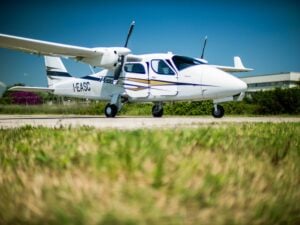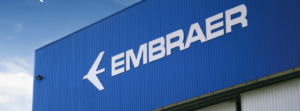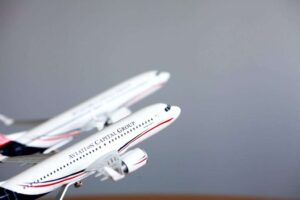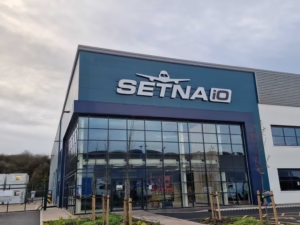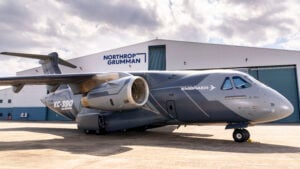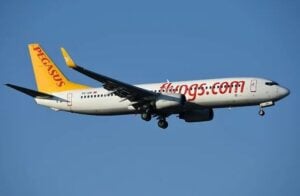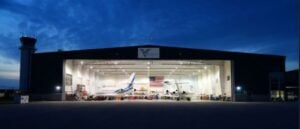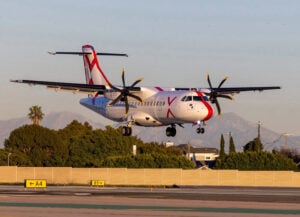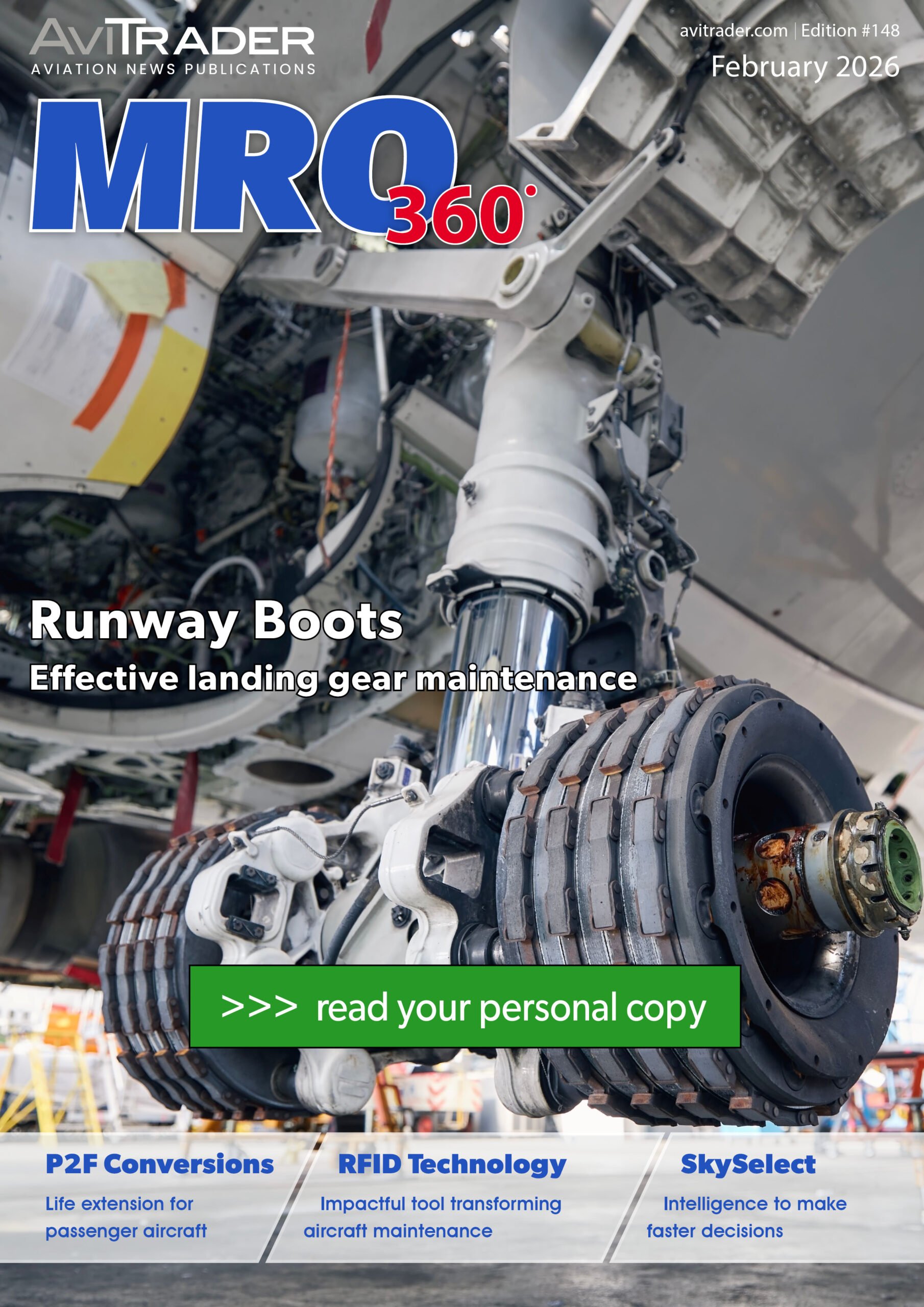AJW Group (AJW) is a dynamic, privately owned, and independent aviation company that has been transforming aviation efficiency for over nine decades.
In 1932, AJW founder, Anthony James (Jim) Walter, qualified as a pilot and took to the skies. His passion for flying saw the Piper Cub aircraft manufacturers giving him sole distribution rights in Europe. And so, A. J. Walter (now AJW) was born.
Jim Walter grew the business until the outbreak of WWII in 1939, when the company’s airfield was appropriated by the war office. It wasn’t until the early 1950’s that the property was returned to Jim after which he moved from selling private aircraft to selling military surplus. The Whiteside family, with current chairman, Christopher Whiteside, now having headed the company for over 30 years.

Expansion through vision
In 1999, the company began focusing on the latest-generation Airbus and Boeing aircraft and powered up its flight-hour contract support. Having started the business based at Gatwick airport when it was nothing but a grass strip, AJW headquarters opened doors in Slinfold, West Sussex, England, in 2012. The same year also marked the launch of AJW Technique in Montreal, moving the Group into the component MRO space, further enhancing its role in supply chain integration.
Over the following decade the company expanded its industry support, landing supply chain contracts with leading airlines, diversifying into the business and defence aviation sectors and expanding its component MRO facilities to include operations in Europe.
In 2022, the Group signed a global sole distributorship agreement with Honeywell and received Woodward Inc. LAMP status. Driven by its ESG strategy and underpinned by its investment in 2,500 solar panels and rainwater harvesting systems at its HQ, AJW joined the United Nations Global Compact in 2023 and remains committed to environmentally conscious operations that lower its impact on the planet.
Last year saw the organisation undertake a major investment in the Airbus A350 and Boeing 787 platforms and expanded its global inventory holding to over US$500m.
A. J. Walter had a dream, and 93 years on, that vision is still going strong. After more than nine decades in the aviation industry, AJW prides itself on the personal touch and agility that Jim Walter showed all those years ago.
Agility & efficiency
The company’s teams provide the commercial, business, and defence aerospace sectors with the most efficient and progressive end-to-end supply chain solutions for the provision and repair of components, warehousing, and logistical service. Our expertise reduces costs, improves profitability, and supports the brand values, goals, and image of its customers. Our global presence extends to operational and inventory hubs and local offices across Africa, Asia Pacific, China, CIS, Europe, Latin America, Middle East, and North America, where we support over 1,000 airlines across 100 countries.
AJW is the aviation partner of choice for supply chain integration. We work with partners to align and deliver effective and efficient aircraft supply chain solutions by optimising inventories, streamlining procurement, and maximising efficiencies. Providing everything from Power-By-the-Hour programmes, comprehensive repair management, and logistical services to complete supply chain solutions, we’re embracing digital transformation and utilise the e-Marketplace with AJW® eventory and a customer portal available 24/7/365. The interactive interface of the platform allows for smoother collaboration and communication, which is faster and less prone to error while ensuring the data and process remain integrated.
MRO-focused facilities
Montreal, one of the top three aerospace capitals of the world, is home to AJW Technique, the Group’s 220,000 sq. ft. core repair service provider. Our industry-focused component MRO expertise and equipment extend to AJW Technique Europe, where you will find our Centre of Excellence for Battery MRO. Skilled and certified Technicians offer battery repair, including deep cycle, top charge, cleaning, re-blocking, regular service, overhaul, test and recertification for all commercial aircraft main, auxiliary, and emergency power supplies.
With an extensive service offering including services for aircraft from all major commercial and business jet platforms, our MRO facilities specialise in supporting the latest generation of Airbus and Boeing aircraft. AJW Technique has the ability to process 35,000 units per year across 6,000 separate part number lines, backed by 450,000 line items of exchange ready inventory.
Key repair services at our MRO facilities include Power Generation, Avionics, Pneumatics, Hydraulics, Fuel Components, Instruments, Galley Equipment, IDG, Electromechanical, Oxygen, and Lighting, while our diverse workforce of highly skilled and licensed technicians and engineers benefit from specialised training programmes to support the aerospace industry. 75% of our 200-strong workforce has on average, 25 years’ experience, which allows the facility to offer customers dynamic turnaround times.
The legacy continues
AJW Group believes in working with partners that understand its business and exchanges reciprocal work based on core competencies. We are continually investing and developing our services, from adding additional MRO capabilities to forming partnerships with OEMs to drive cost and service efficiencies, we invest in the latest aircraft assets to meet the needs of our global customers. We are proud of our 10+ global approvals, and work to continue growing our strategic partnerships to maintain our reputation for customer service excellence while ensuring we continue to transform aviation efficiency.
Interview with Scott Symington, CCO, AJW Group, focusing on PBH agreements
AviTrader MRO: Power-By-the-Hour (PBH) agreements have been around for some time, but why are they still such a dominant trend in 2025?
Scott Symington: PBH continues to thrive because it answers two fundamental airline challenges: financial predictability and operational reliability. Traditionally, maintenance was reactive and capital intensive, with carriers having to budget for sudden component failures or invest heavily in spares’ stockpiles. PBH flips this model by shifting costs into a fixed hourly rate. This allows airlines to plan with certainty while transferring much of the risk to the service provider.
At the same time, the model ensures operational reliability. By leveraging global rotable pools, PBH providers such as AJW, can get parts where they are needed quickly, reducing AOG time and improving dispatch reliability.
How does PBH support airlines as they grow and modernise their fleets?
Scalability is one of PBH’s greatest strengths. As low-cost and ultra-low-cost carriers add aircraft rapidly, contracts can be extended to cover new units without lengthy renegotiation. This flexibility is vital when airlines are inducting next-generation aircraft like the Airbus A321neo or Boeing 737 MAX, which come with increasingly complex component ecosystems.
A good example is Air Transat’s decision to expand PBH coverage to its A321ceo and A321neo fleets in Montreal, Toronto, and Vancouver. This ensured that as the airline modernised, its maintenance support scaled seamlessly alongside. PBH effectively becomes a strategic enabler, aligning with both growth and technology transitions.

Beyond cost predictability, what additional benefits do airlines gain under PBH?
Firstly, warranty recovery: under our PBH programmes, we recover around three quarters of eligible claims, which reduces operating expenditure significantly. Secondly, airlines can outsource repair management and supplier management to AJW, allowing us to pass the cost benefits of our size and scale, and consequently purchasing power, to the airline. This offers the additional internal cost saving to the airline of resources and cashflow tied up in the repair loop.
Thirdly, PBH simplifies logistics. Instead of each airline managing complex supply chains, we centralise warehousing and global distribution, making sure critical parts are available across regions. Our global logistics hubs allow us to support our customers on every continent around the world, enhancing fleet reliability in regions where MRO infrastructure is fragmented.
Innovation is central to PBH’s evolution. Today, leading providers embed predictive maintenance analytics into their programmes, using data to forecast component wear and intervene before a failure occurs. This reduces in-service issues, extends component life, and boosts aircraft availability.
Sustainability is another critical dimension. Our PBH pool is correctly sized for the number of aircraft enrolled. Due to the sheer volume of aircraft under PBH, the overall size of our pool is significantly reduced compared to each airline holding their own inventory pool, therefore reducing the overall amount of raw material and carbon footprint required to support eight hundred aircraft.
Looking ahead, how do you see the PBH model shaping the global MRO landscape?
The global MRO market surpassed $86.5 billion in 2024 and continues to grow at around 6.2% annually. Within that, PBH is capturing an increasing share because it integrates financial discipline, operational resilience, and sustainability.
Geographically, we see significant growth beyond Europe and North America. New PBH contracts in Latin America, Africa, and Asia-Pacific are proving that the model is now globally viable. At the same time, PBH is becoming foundational to airline–MRO partnerships. It’s no longer just a service contract, it is the operational backbone that aligns technology, supply chain expertise, and long-term fleet strategy.
PBH is shaping the future of maintenance by turning uncertainty into predictability, and complexity into managed service. That’s why airlines and operators worldwide are embracing it as their preferred model for the next generation of aviation.






